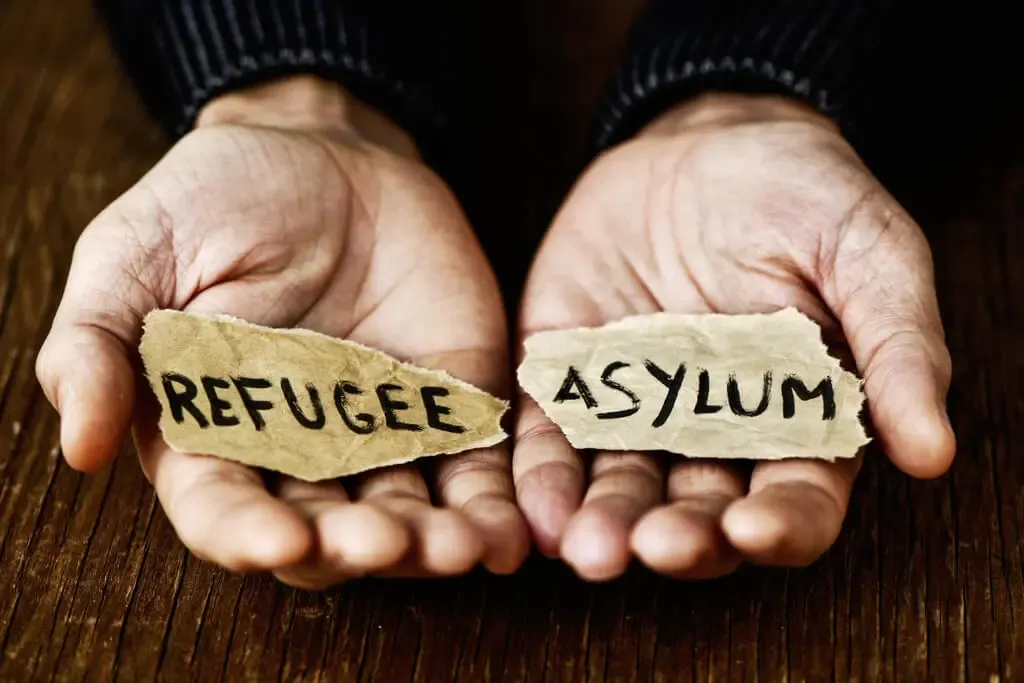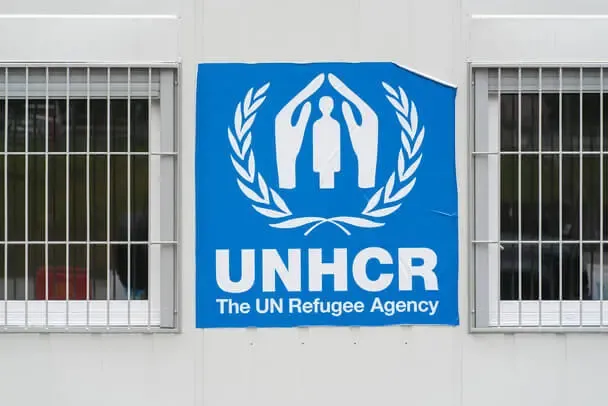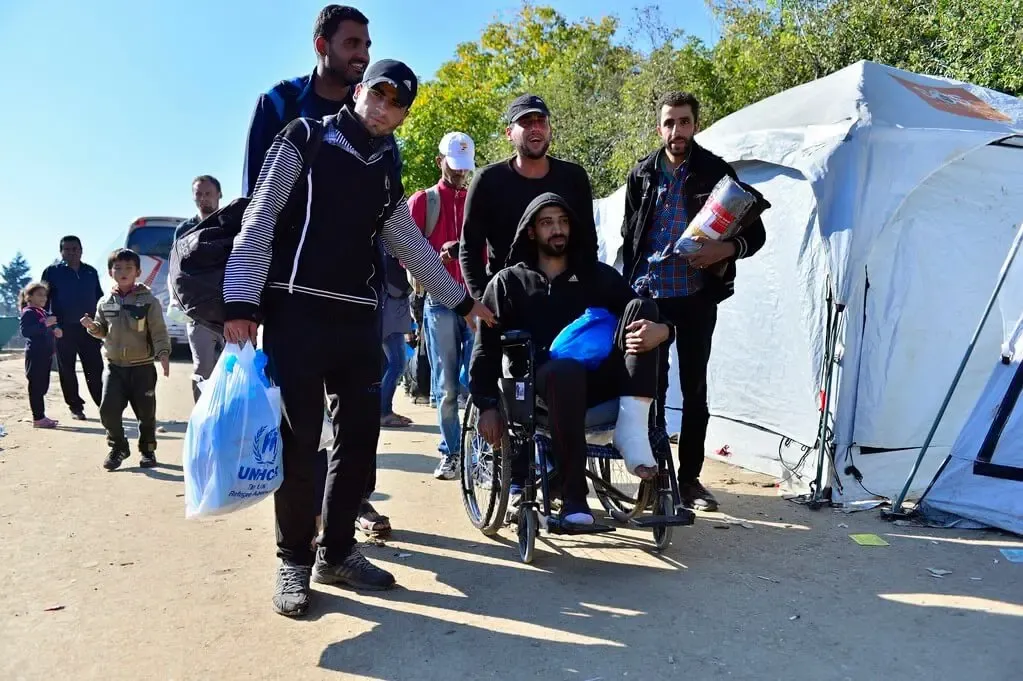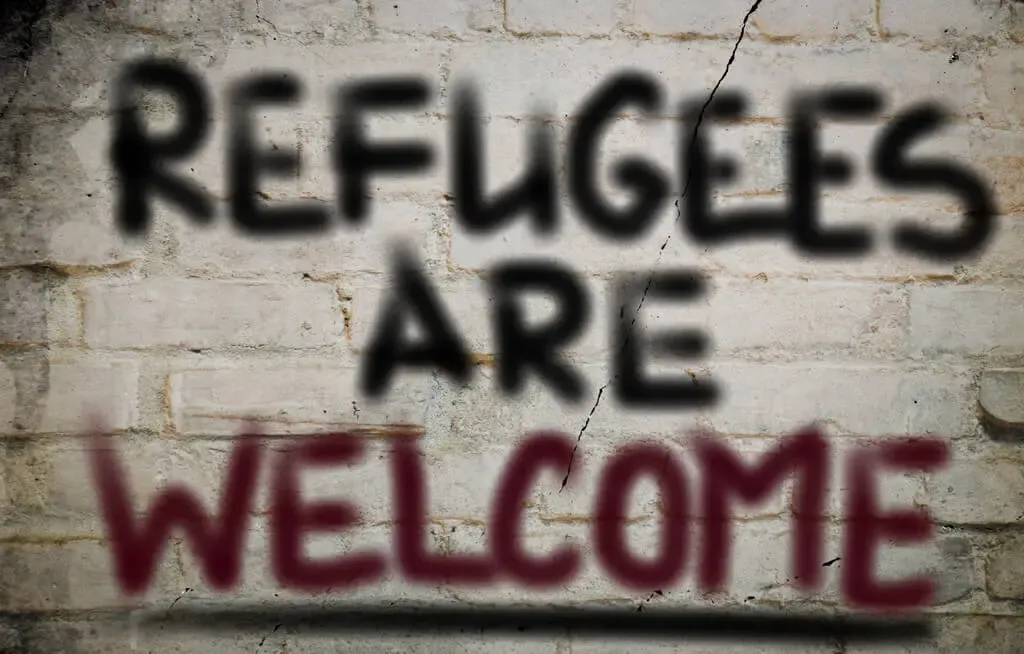Context
The global refugee crisis has been a defining issue of our time, with millions of people fleeing their home countries due to conflict, persecution, and economic challenges. This crisis has had a profound impact on countries across the globe, as they grapple with the task of providing shelter, safety, and support to displaced individuals and families.
Amidst the challenges and complexities of the refugee crisis, there lies an opportunity to invest in hope and compassion. Supporting refugees and their integration into new communities not only addresses their immediate needs but also enriches our cultural tapestry. By opening our doors and hearts to those who have experienced unimaginable hardship, we can embrace diversity and foster a sense of social justice.
Refugees bring with them a wealth of experiences, skills, and perspectives, contributing to the vibrant mosaic of American culture and society. Their cultural heritage, culinary traditions, artisanal crafts, and unique stories enhance the fabric of our communities. By embracing refugees, we can learn from their resilience, strength, and determination, promoting a more inclusive and understanding society.
Investing in the well-being and empowerment of refugees is not just a moral imperative but also a necessary step towards social justice. It requires us to challenge stereotypes, dismantle barriers, and promote equality. Through efforts such as economic empowerment, educational opportunities, and access to essential services, we can support refugees in rebuilding their lives and in turn, enrich our own.
In this interconnected and globalized world, addressing the refugee crisis is not merely a responsibility of specific countries, but a shared global endeavor. By recognizing the significance of supporting refugees, we can create a future founded on compassion, understanding, and respect for all individuals, regardless of their countries of origin.
Aim
This article aims to highlight the importance of supporting refugees and their integration into new communities as a means to enrich our cultural tapestry. By embracing diversity and fostering a sense of social justice, we can not only address the immediate needs of refugees but also benefit from their experiences, skills, and perspectives.
Investing in the well-being and empowerment of refugees is not just a moral imperative, but also a necessary step towards creating a more inclusive and understanding society. Through efforts such as economic empowerment, educational opportunities, and access to essential services, we can support refugees in rebuilding their lives and in turn, enhance our own culture.
Investing in Hope: How Supporting Refugees Can Enrich Our Cultural Tapestry
Supporting refugees is not only a matter of social justice and humanitarianism; it is an opportunity to embrace diversity, cultivate inclusivity, and enrich our cultural tapestry. When we open our hearts and communities to refugees, we welcome a wealth of cultural experiences and perspectives that can transform and enhance American society.
Celebrates Our Collective Human Experience
Refugees bring with them their unique traditions, stories, and ways of life, adding richness and depth to our cultural landscape. Their journeys, marked by resilience and determination, exemplify the human spirit’s capacity to overcome adversity.
By embracing their cultural heritage, refugees help weave a tapestry that celebrates our collective human experience.
Stimulates Creativity
Their cultural contributions go beyond mere surface-level diversity. Refugee communities often take pride in their rich traditions of food, music, art, and artisanal crafts. By sharing these practices, they expose us to new flavors, sounds, and perspectives, which stimulate creativity and foster a deeper appreciation for the world’s diverse cultures.
Promotes Cross-Cultural Empathy
Refugees can help create a more inclusive community by promoting cross-cultural understanding and empathy. Their presence challenges people to question preconceived notions, dismantling stereotypes and fostering a sense of interconnectedness. Through their experiences, they can bridge divides and forge meaningful connections, contributing to a more equitable and harmonious society.

Supporting Refugees is Investing in Our Shared Future
Investing in hope and supporting refugees is, ultimately, an investment in our shared future. By embracing cultural enrichment, diversity, and inclusivity, we create a stronger, more vibrant American society for all.
Together, we can work towards a future where everyone feels a sense of belonging, and our cultural tapestry flourishes with the kaleidoscope of human experiences.
The Refugee Crisis
The global refugee crisis has reached unprecedented levels, with millions of people displaced from their homes and seeking safety and protection in other countries. This crisis is a result of various factors, including conflicts, persecution, and environmental factors.
Conflict-Ridden Regions
Conflict-ridden regions, such as Syria, Yemen, and South Sudan, have produced a significant number of refugees. The ongoing conflicts in these areas have forced individuals and families to flee their homes in search of safety and stability.
Persecution
Persecution based on sexuality, ethnicity, religion, or political beliefs has also driven many people to become refugees. These individuals face severe human rights violations and live in constant fear for their lives.
Environmental Factors
Environmental factors, such as natural disasters and climate change, have also contributed to the refugee crisis. Rising sea levels, droughts, and other environmental challenges have led to the displacement of communities in vulnerable areas, particularly in parts of the world already affected by conflicts and political instability.
Urgent Priority for the International Community
Addressing the refugee crisis is an urgent priority for the international community. The scale of the crisis cannot be underestimated, with over 82 million people forcibly displaced worldwide, according to the United Nations.
Ensuring the safety and well-being of refugees requires immediate action, including providing humanitarian aid, creating safe and legal avenues for resettlement, and addressing the root causes of forced migration.
The refugee crisis is not only a humanitarian issue but also has broader implications for global stability and security. It is crucial to address the underlying causes of forced migration, such as conflicts, persecution, and environmental factors, in order to build a more peaceful and sustainable world.
Defining the Refugee Crisis
The refugee crisis refers to the mass displacement of individuals and families who are forced to flee their homes due to conflicts, persecution, or other adverse circumstances. It is a global phenomenon that affects millions of people worldwide.
Refugees are individuals who have been forced to leave their countries of origin because they fear persecution or have experienced serious harm. They seek safety and protection in other countries and are unable or unwilling to return home due to the ongoing threat to their lives or well-being.
Forced Migration
Forced migration, including both internal displacement and cross-border movement, is a major component of the refugee crisis. These individuals often face immense challenges and dangers as they navigate complex and often hostile environments in search of safety.

The Consequences
The refugee crisis has far-reaching consequences, both for the refugees themselves and for the countries and communities that receive them. It places a significant burden on host countries, particularly those in regions of conflict or instability. The strain on resources, infrastructure, and social services can be overwhelming.
A Coordinated Effort from the International Community
Addressing the refugee crisis requires a collective and coordinated effort from the international community. It involves providing humanitarian aid, offering legal avenues for resettlement and asylum, and addressing the root causes of forced migration.
By recognizing the magnitude and scope of the crisis, we can take meaningful steps towards supporting and protecting those who have been displaced and investing in a more inclusive and compassionate world.
Causes of Forced Migration
Forced migration, also known as involuntary displacement, is driven by various key causes that compel individuals to leave their home countries. These causes can be due to conflict and violence, political persecution, economic insecurity, and environmental disasters.
Conflict and Violence
Conflict and violence are major drivers of forced migration. People flee their homes to escape armed conflicts, civil wars, ethnic violence, and other forms of violence that threaten their lives and safety. Such conflicts can be fueled by political, ethnic, religious, or territorial disputes, creating an environment of fear and insecurity.
Political Persecution
Political persecution forces individuals to flee their countries due to persecution based on their political beliefs, ethnicity, religion, or social affiliations. Individuals facing systematic discrimination, human rights abuses, or political repression often have no choice but to seek asylum in other countries to secure their safety and freedom.

Economic Insecurity
Economic insecurity is another significant cause of forced migration. Poverty, lack of job opportunities, and economic instability push individuals to leave their countries in search of better economic prospects and improved living conditions. Factors such as inequality, corruption, and limited access to resources amplify the economic challenges faced by many communities.
Environmental Disasters
Environmental disasters, both natural and human-induced, also drive forced migration. Rising sea levels, extreme weather events, droughts, and desertification contribute to the displacement of people who can no longer sustain their livelihoods due to the adverse impacts of climate change or environmental degradation.
The Need to Address Forced Migration
These causes of forced migration disrupt the lives of millions of people worldwide, leading them to embark on perilous journeys in search of safety, security, and opportunities for a better future.
Addressing the root causes of forced migration requires comprehensive strategies that tackle issues related to conflict resolution, human rights protections, poverty alleviation, and environmental sustainability.
The Urgency to Address the Crisis
The global refugee crisis is an urgent issue that requires immediate attention and action. Conflict, political persecution, economic insecurity, and environmental disasters are driving millions of people to flee their homes and seek safety and refuge in other countries.
Understanding the Application Process for Refugees
The application process for refugees involves several steps and protocols implemented by the United Nations Refugee Agency (UNHCR) and the U.S. system for processing refugees. These protocols ensure that individuals who are fleeing persecution or violence in their countries of origin are given the opportunity to seek safety and ultimately find a new home in a safe country.
The Role of the UNHCR
The UNHCR plays a crucial role in determining refugee status and providing protection and assistance to those in need. They conduct interviews and assessments to establish the eligibility of individuals for refugee status, taking into account their personal circumstances and the conditions in their home country.
Once a person is recognized as a refugee by the UNHCR, they may be referred to the United States for resettlement. The U.S. system for processing refugees involves a rigorous screening process that includes security checks, medical examinations, and interviews. To gain approval for resettlement, refugees must meet specific eligibility criteria and undergo thorough background checks.

Each Country Has its Own Requirements
It’s important to note that each country has its own requirements and policies when it comes to accepting refugees. These requirements may vary depending on factors such as the current refugee crisis, diplomatic relations, and domestic immigration policies.
By understanding the application process for refugees and the protocols followed by the UNHCR and the U.S. system, we can gain a deeper appreciation for the complexities involved in providing safety and opportunities for individuals fleeing persecution.
It highlights the need for global cooperation and empathy in supporting those in search of hope and a better future.
Overview of U.N. Refugee Agency Protocols
The U.N. Refugee Agency (UNHCR) has established protocols and procedures to facilitate the application and resettlement of refugees. These protocols ensure that individuals who are forced to flee their countries due to persecution or violence are given the opportunity to seek safety and find a new home in a safe country.
The Application Process
The application process for refugees begins with registration. Refugees are required to provide personal information and undergo interviews and assessments conducted by the UNHCR. These interviews and assessments aim to establish the eligibility of individuals for refugee status, taking into account their personal circumstances and the conditions in their home country.
The Resettlement Process
Once a person is recognized as a refugee by the UNHCR, they may be referred to a resettlement country such as the United States. The resettlement process involves a thorough screening process that includes security checks, medical examinations, and interviews. To gain approval for resettlement, refugees must meet specific eligibility criteria and undergo background checks to ensure the safety and security of both the refugee and the host country.
It is important to note that the requirements and policies for accepting refugees vary between countries. These requirements consider factors such as the current refugee crisis, diplomatic relations, and domestic immigration policies. The protocols established by the UNHCR serve as guidelines to ensure a fair and efficient application and resettlement process for refugees worldwide.
Consideration of Country-Specific Requirements and Policies
When it comes to accepting refugees, different countries have specific requirements and policies in place. These policies can vary significantly from one country to another, taking into account factors such as geography, political climate, and available resources.
Acceptance Criteria
Countries have different acceptance criteria for refugees, which may include factors such as the severity of persecution in the individual’s home country, the level of vulnerability, or the family status of the applicant. Some countries prioritize accepting refugees from certain regions or with specific skills that are needed in their labor market.

Geographical factors also play a role in a country’s refugee policies. Countries near conflict zones or areas with high rates of displacement may have greater influxes of refugees and therefore different policies to manage the situation. Additionally, countries with limited resources may have stricter admission policies due to their inability to provide adequate support and integration services.
The political climate within a country can greatly influence its refugee policies. Countries with more progressive political climates may adopt more open and welcoming approaches, while others with strict immigration policies may have more stringent requirements for refugee acceptance.
Refugee Policies Are Constantly Evolving
It’s important to recognize that refugee policies are constantly evolving. As the global refugee crisis continues to unfold, countries are adapting their policies to address the changing needs and demands of both refugees and host communities.
Understanding the U.S System for Processing Refugees
The process of how refugees are processed in the U.S involves several steps to ensure that individuals seeking refuge are thoroughly screened and assessed. The application process begins with the submission of an application to the United Nations High Commissioner for Refugees (UNHCR) or another designated agency. These organizations conduct interviews and gather information to determine refugee status.
The U.S. Refugee Admissions Program
Once an individual is identified as a potential refugee, their case is referred to the U.S. Refugee Admissions Program (USRAP). The USRAP is a collaborative effort between several key agencies, including the Department of State, the Department of Homeland Security, and the Department of Health and Human Services. These agencies work together to process and resettle refugees in the United States.
The Screening Process
The screening process involves thorough background checks, including biometric screenings, to ensure the security and safety of the United States. Medical examinations are also conducted to identify any health concerns and provide appropriate care upon arrival.
Resettlement
After successfully passing the screening process, refugees are assigned to a resettlement agency in the United States.
These agencies play a crucial role in providing support and resources to help refugees integrate into their new communities. They assist with essential services such as housing, employment, language acquisition, and cultural orientation.
Collaborative Efforts of Key Agencies
Understanding the U.S system for processing refugees requires acknowledging the collaborative efforts of key agencies involved in the application and screening process.
By prioritizing security and comprehensive evaluations, the U.S. system strives to ensure the successful resettlement and integration of refugees into American society.
Supporting Refugee Families upon Arrival in America
Refugees face numerous challenges upon their arrival in America, including language barriers, cultural adjustment, and access to basic necessities. Language barriers can pose significant difficulties for refugees as they try to communicate and understand the new environment. Many refugees come from countries where English is not the primary language, making it crucial to provide language acquisition resources to help them overcome this obstacle.

Cultural Adjustment
Cultural adjustment is another challenge that refugees often encounter. They may find themselves in unfamiliar surroundings with different customs and social norms. This can lead to feelings of isolation and the need for assistance in navigating their new cultural landscape.
Access to Basic Necessities
Access to basic necessities is also a concern for refugees. Some arrive in the country with limited resources and may struggle to find housing, employment, or healthcare. This is where a robust support network becomes vital.
Finding Suitable Housing and Employment
Finding suitable housing and employment is also a significant concern for refugees. Many arrive with limited resources and lack the networks necessary to secure stable housing and employment opportunities. This can perpetuate their vulnerability and hinder their ability to rebuild their lives.
Access to Education and Education
Accessing essential services such as healthcare and education can be a formidable task for refugees, as they may face bureaucratic hurdles and be unfamiliar with the American system.
Developing a Support Network
Developing a support network for refugees and their families is crucial in helping them navigate these challenges. By connecting refugees with local social services agencies, they can access resources and assistance tailored to their specific needs. These agencies provide essential services such as housing assistance, employment services, and healthcare referrals. Additionally, they often offer cultural orientation programs to help refugees integrate into their new communities.

Some of the local social services agencies that can provide assistance to refugees include Jackson County Refugee Transition, Clermont County Family Services, and Border Outreach. It is essential to connect refugees to these resources to ensure they receive the support necessary for a successful start in their new lives.
Supporting Refugees
Supporting refugee families upon arrival in America requires addressing the challenges they face, such as language barriers, cultural adjustment, and access to basic necessities.
Establishing a strong support network and connecting them to local social services agencies is essential in helping them overcome these challenges and successfully integrate into their new communities.
Developing a Support Network for Immigrants and Their Families
Developing a support network for immigrants and their families is crucial in helping them successfully integrate into their new community. There are several community organizations, volunteer opportunities, and social services agencies that can provide assistance to immigrants during this process.
Community Organizations
Community organizations play a vital role in supporting immigrants and their families. These organizations often offer language classes, job placement services, and cultural integration programs. They provide a safe space where immigrants can connect with others who share similar experiences and challenges.
Volunteer Opportunities
Volunteer opportunities are another way to contribute to the support network for immigrants. By volunteering at organizations that provide services to immigrants, individuals can directly assist in helping them navigate their new environment. This could involve mentoring, tutoring, or helping with language acquisition.
Social Services
Social services agencies are invaluable in providing essential support to immigrants and their families. They can assist with finding suitable housing, accessing healthcare services, and enrolling children in schools. These agencies often have bilingual staff who can guide immigrants through the application process and help them understand their rights and entitlements.
Fostering a Sense of Community
Fostering a sense of community and providing access to basic needs such as housing, healthcare, and education are critical in ensuring the successful integration of immigrants and their families.
By developing a robust support network that includes community organizations, volunteer opportunities, and social services agencies, immigrants can find the assistance they need to thrive in their new home.

Connecting Refugees with Local Social Services Agencies for Assistance
When refugees arrive in America, local social services agencies play a crucial role in providing them with much-needed assistance. These agencies offer a range of services to help refugees navigate their new environment and build a better future for themselves.
Allegheny County Department of Human Services
The Allegheny County Department of Human Services provides a comprehensive support system for refugees. They offer language classes to help refugees improve their English proficiency and facilitate their integration into American society.
Additionally, they provide job training programs to equip refugees with the skills they need to find employment and become self-sufficient. The agency also assists refugees with housing, ensuring they have a safe and stable place to call home.
Refugee Transitions
Another local social services agency that focuses on refugee support is Refugee Transitions. This organization, based in San Francisco, offers a variety of services to help refugees thrive in their new community.
They provide English language classes, mentorship programs, and job placement assistance. Refugee Transitions also offers programs to support the education of refugee children, helping them succeed in public schools and create a brighter future.
The International Institute of Rhode Island
The International Institute of Rhode Island is another agency dedicated to supporting refugees upon their arrival. They provide language classes, employment services, and assistance with the application process for public benefits.
Additionally, the organization offers cultural orientation programs to help refugees adapt to their new surroundings and foster a sense of community.
Connecting Refugees with Local Social Services Agencies
By connecting refugees with these local social services agencies, we can ensure they receive the assistance they need to rebuild their lives and contribute to their new communities. From language classes and job training to housing assistance, these agencies play a vital role in helping refugees become self-sufficient and flourish in America.
Conclusion
In conclusion, supporting refugees is not only an investment in their future, but also an investment in ours. By providing access to essential social services such as language classes, job training, and housing assistance, refugees can begin to integrate successfully into not only the American society, but also host countries all around the world.
By connecting refugees with local social services agencies such as the Allegheny County Department of Human Services, Refugee Transitions and the International Institute of Rhode Island, we can help ensure that refugees are able to build a better future for themselves and enrich our cultural tapestry.





